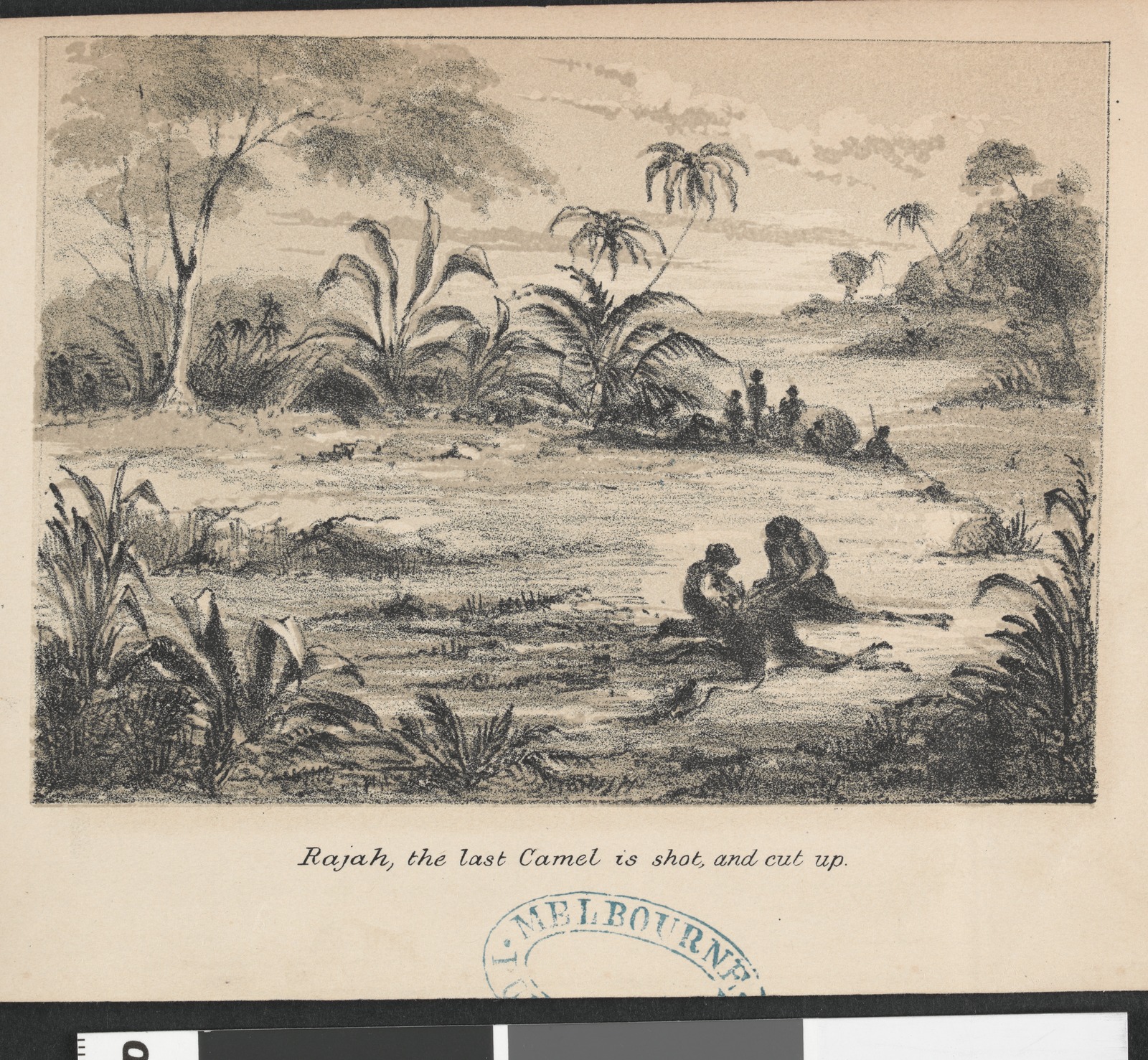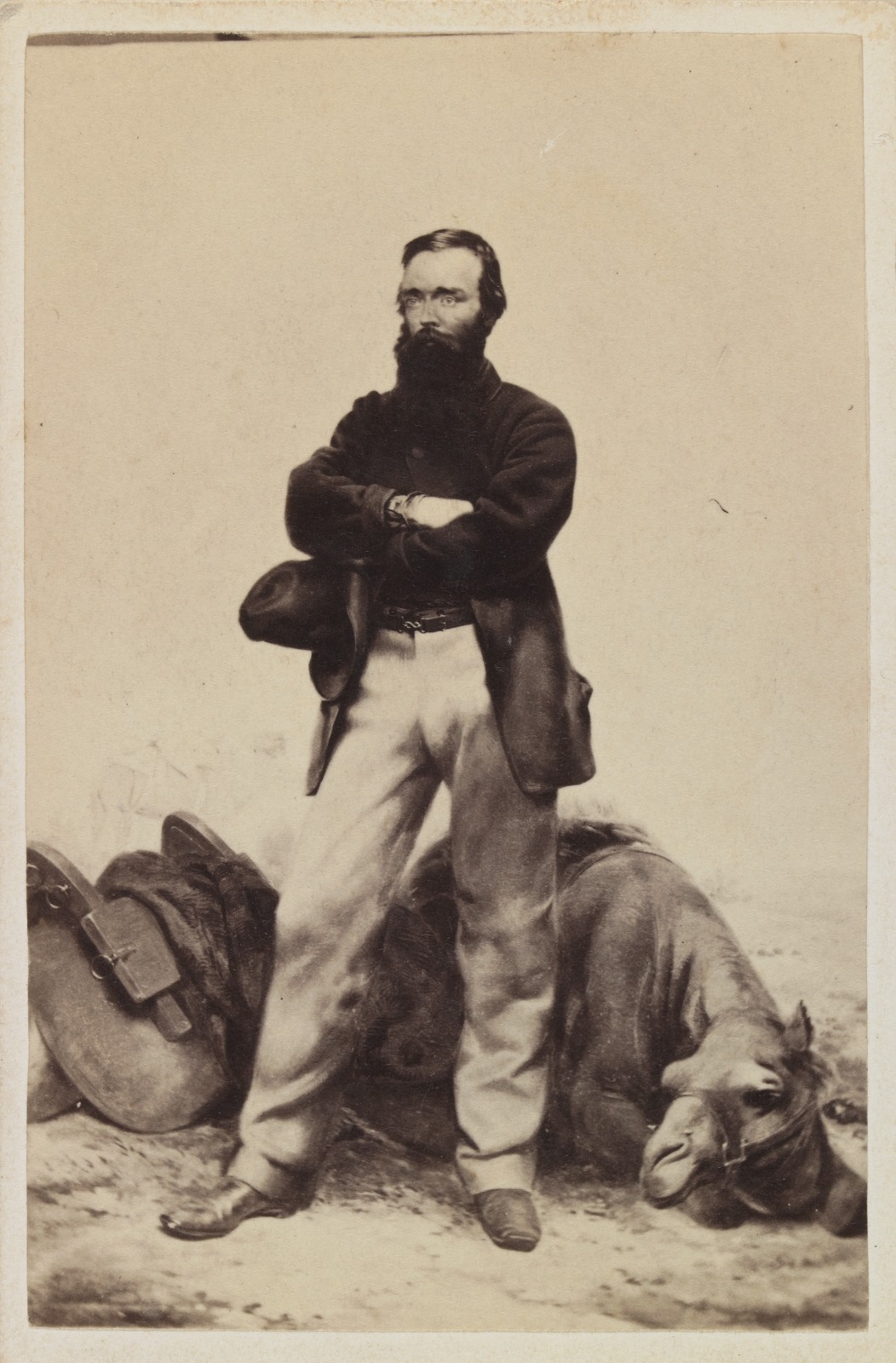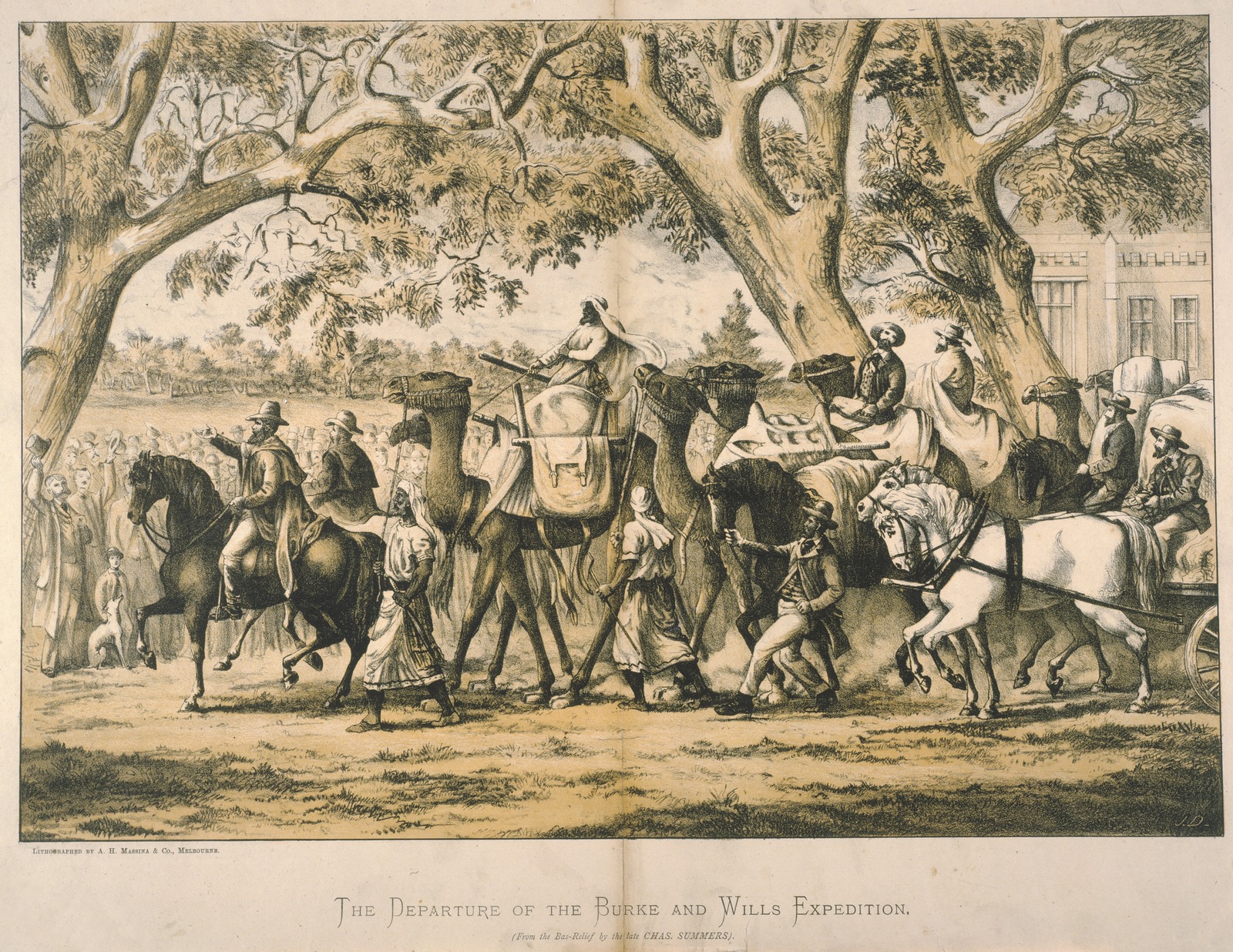If one visits the State Library of Victoria, one can request a unique item of realia: hair from the camels used on the Burke and Wills Expedition. The hair was donated by a Mr Broomhead in 1969. Its accession number is H31978. It is brown and fluffy and kept in a plastic zip-lock bag. It contains no further accompanying documentation. This piece of realia can be viewed, but not interacted with. No testing has been done to establish its authenticity.
If one could touch the hair, one could imagine oneself as a malnourished explorer, feeling the same sensations as someone who had travelled from Melbourne to the Gulf of Carpentaria only to be plagued by monsoon rains and met with eventual death. One could imagine an entire archive of scents and odours, textures and tastes, visions and atmospheres. Further still, a captured, ziplocked, and documented series of emotions, affects, contexts. Everything fully preserved. But in lieu of this impossible fantasy, we must settle for a bag of untouchable hair that may or may not be what it claims.
The first step is to remove the skin. Yet before you have even punctured hide, flies swarm. Flies as big as fists.[1] Omnipresent harassers. Stubby, unfussy vultures. To them, all flesh is carrion.
Camel, you have learned, is a rich meat. A cross between lamb and beef. Not unlike horse. Vastly superior to python[2], a predilection you wish lacked quiddity. This camel, your last, formerly named ‘Rajah’, will be prepared two ways. First, it will be prepared as stew, using mostly fat. Fat does not keep. Yours, certainly, is long gone.[3]
Second, the meat will be dried.
Ideally, you would hang the beast from a tree, left to dangle like an odious Christmas ornament, but you do not have the energy to hoist and are wary of asking others for help. Morale is low. Though members of your party offer assistance, you soon shoo them away as if they, too, are flies. Huddled over the dead camel, you thrust an oxidising knife [4] into its chest and saw between the sharp definition of the ribs. Blood pools, hot and syrupy. It is unnerving to stick your hand into the fading warmth of muscle tissue. [5] You tie the hind legs to a nearby branch. The tree is fruitless; its leaves look like ancient paper.[6] For now, you abandon the animal, leaving its shoulder and neck crumpled at perverse angles in the dust. You try to conceal the carcass from horseflies with dried fronds, but the flies’ numbers are too great; death’s perfume is too alluring. [7]
Your spirits are flimsy, prone to sharp misanthropic dives.[8] This must be kept in check. You decide to wait for the camel’s body temperature to fade. You lay down in the hot shadows, conceal vision with your hat, and wait.[9] For now, you have decided that you will not be leaving here.
You will likely be leaving this world here. It is a realisation all your party have made. Murmurs have stirred, but none as sharply defined as these thoughts. Defeat shows in weak postures, skeletal physiques, inflamed eyes, and pallid hues despite sun damage.[10]
Once the sun begins to fade, you opt to make stew. It is not your job, but as leader of this expedition, you feel it is your responsibility. Eating the final means of transport is bitter enough. Preparing it feels like divine humiliation.
The hump of the camel contains fat. You slice it off in one go. Using this blubbery cut, a part prized in other parts of the world (for you, at this point in time, all parts are prized), you add water and boil it over flickering fire. Transferring flame, you form multiple fires, over which you build small structures of wood and fronds to hold the meat in place. You slice and hang grisly strips. Blood and fat hisses, unleashing rancid smog. Droplets of grease float around you. [11] The task is not arduous. The gaunt carcass yields scant offerings.
After some time, the water and fat develop into a lardaceous broth, resembling bubbling mud.[12] It would be preferable to include onion, celery, carrot, potato, garlic, or thyme, but you are limited only to meat.[13] This is not a complex dish. This is not a complex circumstance. Vast land.[14] The absence of former aspirations.[15] Envy of Americans’ revolutionary war[16] and the Brits’ exploratory fleets[17]: glory[18] that you once presumed tasted sweeter than the broth of plumpest hump. Recollections of what you thought was civilisation. Of past meats.[19] Of wounds[20] and soul.[21] Now, nothing but dust.[22] Particles seize all space under nails, in nostrils, between teeth. Nothing but dust and diarrhoea.[23] The insides want to leap out and be expelled.[24] You feel it inside. Conquered by unseen forces.[25] Never-ending swamp flats[26] extend forever into a world of marsh and mire, with no sight of the ocean. There is no ocean anymore.[27] No Ireland.[28] No island. A flat expanse of infinite wasteland.[29] A waste. Failed jaunt. Best not to return. Best not to let anyone see you in this state. May you never see another reflection of your face.[30]
All of it, even shame, melts away in the face of this hunger[31]. Savouring this stew is wonderful and painful. It is not sustenance, but delay. It tastes rich, hearty, monotone. You gulp each spoonful, splashing a new one ready to meet your maw. To eat this dish is to accept defeat.[32] You continue to slurp, ravenous as a scraggy dingo.[33]
Hope is infecting the campfire silence. Hope, you note, is a respectable state of mind only if accompanied by humility. Passed around, with no explanation or discussion, are small clumps. Men rip them with their teeth, and dip them into broth. You are handed a piece. You sniff and lick. It is charred and grainy, with a bitter tang.[34] Voracity bests caution. You plunge the grainy clump into soup and chew. It tastes like salvation.
The fat does not sit well. Or perhaps is used immediately, flushed out through intestines eager for something to do with themselves.[35] Any positivity gained from hump broth, like the hump broth, has been expelled.
This morning, someone is passing around a gruel: a grainy porridge made from local plants.[36] Word trickles down. The cakes from the previous evening were supplied by natives. With confidence, the same plant has been collected and mushed into a paste. The party is gorging. You are reluctant to join them, but a bowl is presented, and hunger remains a circumfluent problem.
In such restless, feverish, intoxicated moments[37], one must strive toward some level of authenticity.[38] It is all that can be grasped so as to remain or seem human, above the beasts that circle, that grunt, that thrive.[39] You have eaten nothing but bitter porridge for days. Bitterness is a sense that warrants respect.[40] The sensitivity of the tongue: sharp, disagreeable, yet peppered with moments of shameful desire. This is the mood around the campfire, of the campaign, of what is to follow.
There is something wrong with the porridge. You eat your fill, and yet are not satiated. It is cursed. You blame the natives. It is the logical conclusion in such circumstance. The dried camel meat has been equally distributed to the party. You chew on the leathery strip, allow it to lodge within your teeth, a tasty, sustaining snack for your future self to discover.[41] Just as the meat has been distributed fairly, so must retribution be parcelled out. It is not a pleasant task, but one, you believe, that must be done. You clutch your gun with trembling hands, thrust towards where you believe the natives lie, and fire.[42] Reload. Fire. You believe you catch the natives fleeing, but you are not certain. All is bleary and blurry.[43]
You take another indulgent chomp of dried camel meat. Your last piece. It is hard and chewy. You chew with great vigour, refusing to swallow. You plan to masticate on this hunk forever. You fantasise of telling your team to take a rest, to let you take care of the cutting up, the slicing and sluicing, the hanging of strips in the harsh, white light of Terra Australis that roasts everything it touches. And there is, in your mind, much dried meat to eat. Oh yes, there is so much dried meat.



